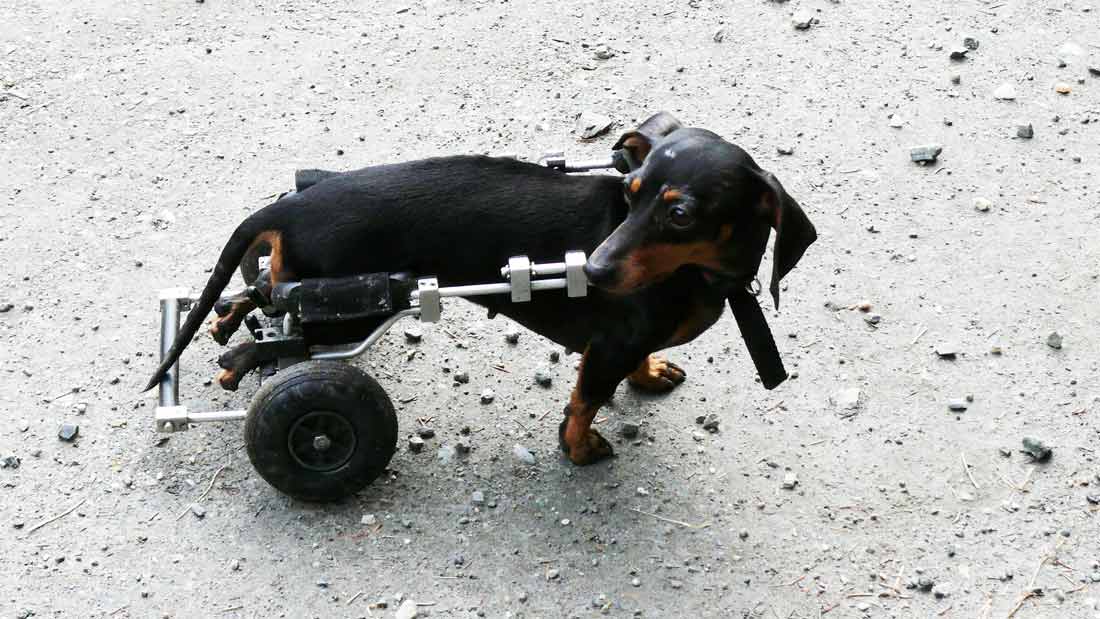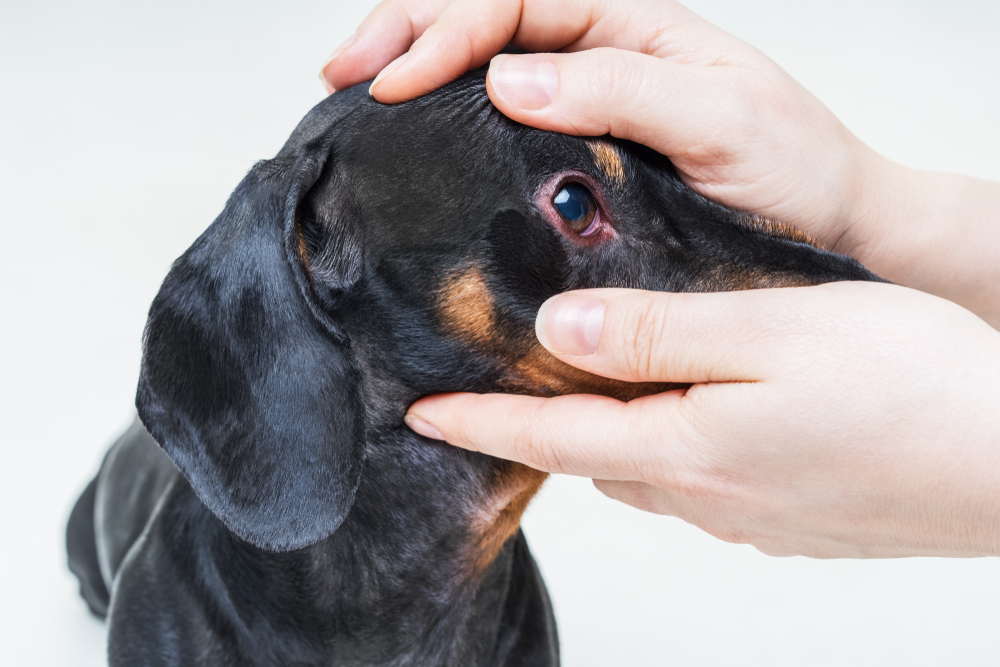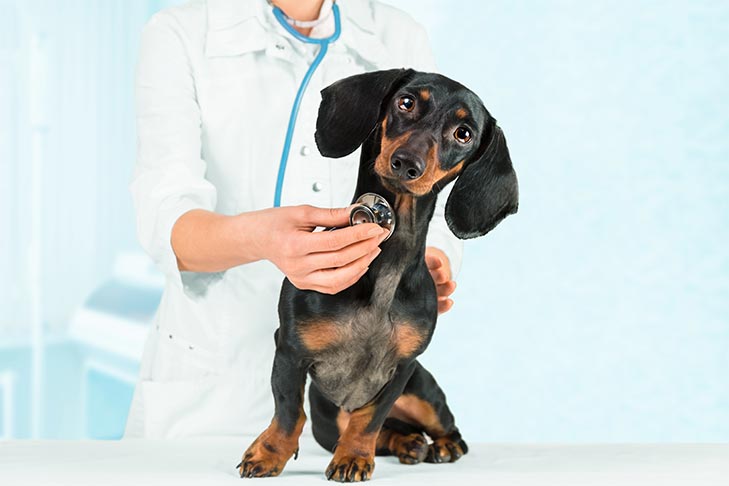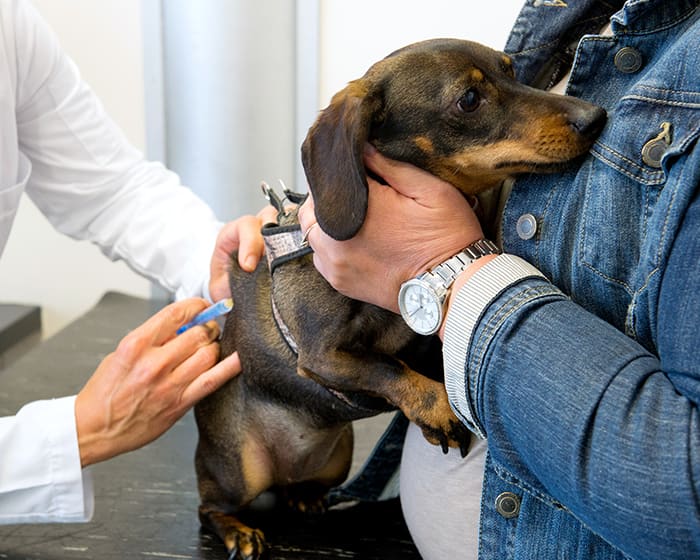Dachshunds, with their distinctive long bodies and charming personalities, are beloved companions in many households. As with any beloved pet, understanding their health and longevity is crucial for responsible ownership. One common question that often arises among dachshund owners is, “What do dachshunds usually die from?” This inquiry touches on a deep concern for the well-being of these unique dogs. In this article, we delve into the factors that can affect the lifespan of dachshunds, exploring common health issues and providing insights into how to ensure a long and healthy life for your furry friend. Understanding these aspects is essential for any dachshund owner who wants to provide the best possible care for their pet.

What do dachshunds usually die from?
1. Intervertebral Disc Disease (IVDD)
A. What is IVDD and why are Dachshund dogs susceptible to this disease?
IVDD is a condition where the cushioning discs between the vertebrae of the spinal column bulge or burst into the spinal cord space. Dachshunds are particularly prone to IVDD due to their long backs and short legs.
B. Symptoms and diagnosis of IVDD
Symptoms include pain, difficulty walking, paralysis, and loss of bladder or bowel control. Diagnosis is typically made through physical exams, X-rays, or MRIs.

C. Treatment options and prognosis
Treatment can range from anti-inflammatory medications and strict rest to surgical intervention in severe cases. The prognosis varies depending on the severity and treatment response.
D. Prevention strategies
Preventive measures include maintaining a healthy weight, using ramps to avoid jumping, and providing adequate support when holding or carrying the dog.
2. Cancer in Dachshund Dogs
A. Common types of cancer in Dachshund dogs
Common cancers include mammary tumors, mast cell tumors, and lymphoma.
B. Risk factors and genetic factors
Genetics play a significant role, with certain lines being more predisposed. Additional risk factors include environmental exposure and age.

C. Early detection and screening
Regular vet check-ups and being vigilant about changes in your dog’s behavior or lumps can aid in early detection. Blood tests, ultrasounds, and biopsies may be used for screening.
D. Treatment options and survival rate
Treatment options include surgery, chemotherapy, and radiation. The survival rate depends on the type and stage of cancer, but early detection generally improves outcomes.
3. Heart Disease
A. Common types of heart disease in Dachshund dogs
Common heart diseases include mitral valve disease and dilated cardiomyopathy.
B. Symptoms and diagnosis
Symptoms can include coughing, lethargy, difficulty breathing, and fainting. Diagnosis is typically made through physical exams, chest X-rays, and echocardiograms.

C. Management and treatment options
Management options include medications, lifestyle changes, and sometimes surgical procedures. Regular monitoring and follow-up are crucial.
D. Preventive measures for cardiovascular health
Preventive measures include maintaining a healthy diet, regular exercise, and routine veterinary check-ups.
4. Obesity and Related Health Problems
A. Why are Dachshund dogs easily obese?
Dachshunds have a tendency to gain weight due to their small size and low activity levels.
B. Health risks associated with obesity in Dachshund dogs
Obesity can lead to diabetes, heart disease, and exacerbate IVDD.

C. Proper diet and nutrition for Dachshund dogs
A balanced diet tailored to their size and activity level is essential. Avoid overfeeding and high-calorie treats.
D. Exercise is recommended to maintain a healthy weight
Regular walks and playtime are crucial to keeping your Dachshund fit and healthy.
5. Age-Related Disease
Older Dachshunds can suffer from various age-related diseases, including arthritis, cognitive dysfunction, and organ failures.

Other Common Health Problems
Cushing’s Disease
A condition where the adrenal glands produce too much cortisol, leading to symptoms like increased appetite, drinking, and urination.
Bloating (Gastric Dilatation-Volvulus)
A life-threatening condition where the stomach twists, cutting off blood flow and trapping gas.
Dental Problems
Dachshunds are prone to dental issues, which can lead to more severe health problems if not addressed.
Eye Problems
Common eye issues include cataracts and progressive retinal atrophy.

Premium Dachshund Care
Regular Veterinary Check-ups
Regular veterinary visits are vital to catch any potential health issues early and maintain your Dachshund’s overall well-being. These check-ups typically include physical examinations, vaccinations, and routine blood tests. Specialized tests like X-rays or echocardiograms might also be recommended based on your dog’s health history.

Balanced Nutrition
Providing your Dachshund with a balanced diet that meets their unique nutritional needs is essential. Choose best dog food for dachshunds formulated specifically for their age, size, and health conditions. Avoid feeding them table scraps or high-calorie treats. Consult your veterinarian to develop a diet plan tailored to your Dachshund to ensure they receive all necessary nutrients.
Regular Exercise
Regular exercise helps maintain a healthy weight and prevents obesity-related health problems. Engage your Dachshund in daily activities such as walks, play sessions, and agility exercises. Ensure that the exercise is appropriate for their age and physical condition to avoid overexertion or injury. Encouraging your dog to stay active can benefit their cardiovascular health and overall fitness.

Dental Care
Dental health is often overlooked but is crucial for preventing more severe health issues. Brush your Dachshund’s teeth regularly with dog-safe toothpaste and provide dental chews to help reduce plaque buildup. Regular dental check-ups and professional cleanings from your vet can prevent periodontal disease and other dental problems that can affect your dog’s overall health.
Grooming and Hygiene
Regular grooming helps keep your Dachshund’s coat and skin healthy. Brush their coat to remove loose hairs and prevent matting, and bathe them as needed with dog-safe shampoos. Don’t forget to check their ears for signs of infection, clean them regularly, and trim their nails to prevent discomfort and potential injuries.

Mental Stimulation
Mental stimulation is essential for preventing boredom and promoting overall well-being. Provide interactive toys, puzzle feeders, and engage in training sessions to keep your Dachshund mentally sharp. Socialization with other dogs and people can also contribute to their emotional health and prevent behavioural issues.
Safe Environment
Create a safe home environment to protect your Dachshund from potential hazards. Use baby gates to block off stairs and prevent injuries, and provide ramps or steps for them to access furniture safely. Keep harmful substances like household cleaners and medications out of their reach. By ensuring a secure environment, you can minimize the risk of accidents and injuries.

Monitor for Signs of Illness
Being vigilant about any changes in your Dachshund’s behaviour, appetite, or physical condition can help you detect health issues early. Watch for signs such as lethargy, loss of appetite, vomiting, changes in urination or defecation patterns, and unusual lumps or bumps. Early detection and prompt veterinary care can significantly improve the prognosis for many health conditions.
Preventive Care and Longevity
Periodic Veterinary Examination and Screening
Regular vet check-ups are essential for early detection and prevention of health issues.

The Importance of Dental Care
Regular dental cleanings can prevent serious health problems.
Maintain a Healthy Lifestyle (Diet and Exercise)
A balanced diet and regular exercise can significantly improve your Dachshund’s quality of life.
Genetic Testing and Responsible Breeding
Opt for breeders who conduct genetic testing to minimize the risk of hereditary diseases.
Frequently Asked Questions About Dachshunds’ Health
Q : Does regular exercise maintain the health of dachshunds, and how much exercise does a dachshund need?
A : Regular exercise is crucial for maintaining the health and happiness of a dachshund. The question posed is “How much exercise does a dachshund need?” Despite their small size, dachshunds are energetic dogs with high exercise requirements. They typically need about 30 minutes to 1 hour of exercise per day, depending on their age and individual fitness level. Activities such as walking, playing fetch, or running can help maintain muscle tone and reduce the risk of obesity, which is common in this breed. To ensure overall health and development, it’s important to schedule regular and adequate exercise for your dachshund.
Q : How long do dachshunds live?
A : Dachshund lifespan between 12 to 16 years, but their longevity can be influenced by genetics, diet, exercise regimen, and overall health care. Proper veterinary care and attention to their specific needs can contribute significantly to ensuring dachshunds live long, healthy lives.
Conclusion
The mortality of Dachshunds typically stems from serious medical conditions, including common issues like heart disease, cancer, and spinal problems. However, proper nutrition and care can mitigate risks and prolong their lifespan. Regular veterinary check-ups and preventive healthcare are crucial to understanding the question “what do dachshunds usually die from“.

Cuddle Companions is your go-to resource for everything you need to keep your furry friends happy and healthy. We specialize in providing detailed and helpful information about the best foods, treats, and care practices for pets of all kinds. Whether you’re a seasoned pet owner or a new puppy parent, our team of experienced and passionate experts is dedicated to offering reliable advice and recommendations. At Cuddle Companions, we believe that a well-cared-for pet is a happy pet, and we’re here to help you every step of the way. Visit us at [bestdogfoodfordachshunds.net] for more information and resources.

